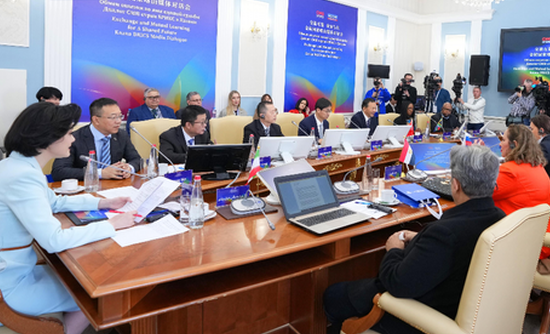Sebi Chairperson’s PAC Meeting Postponed Amidst Controversy
NEW DELHI: The scheduled meeting of Parliament’s Public Accounts Committee (PAC) faced an unexpected delay on Thursday, prompting discussions surrounding regulatory oversight in India. Securities and Exchange Board of India (Sebi) chairperson Madhabi Puri Buch, alongside her officials, cited "pressing reasons" for their absence just hours before the session was set to convene.
PAC chairperson K C Venugopal addressed the media, stating that Buch had notified the committee at 9:30 AM that she could not travel to Delhi. Venugopal, a senior Congress leader, indicated that the committee had planned to review Sebi’s performance during the meeting. "In our first meeting, we agreed to pursue a suo moto subject on the review of our regulatory bodies. This is why Sebi was summoned," he noted, emphasizing the necessity for regulatory accountability.
On the Agenda: Accountability and Allegations
The PAC’s focus on Sebi was particularly timely, as it coincides with recent allegations of conflict of interest involving Buch, leveled by US-based short-seller Hindenburg Research. The repercussions of these accusations have been significant, igniting a political firestorm as Congress has urged Buch’s removal from her position. Venugopal remarked, "Considering a woman’s request, we felt it prudent to postpone the meeting to another day."
Despite the absence of objections to the PAC’s intent to review the performance of regulatory bodies, tensions simmered within the committee. BJP MP Ravi Shankar Prasad criticized Venugopal for unilaterally postponing the meeting and indicated that several committee members are seeking intervention from Lok Sabha Speaker Om Birla regarding what they perceive as Venugopal’s misconduct.
BJP member Nishikant Dubey has been vocal in his criticism, asserting that Venugopal’s decision to summon Buch was politically motivated and aimed at undermining the central government. In a letter addressed to the Lok Sabha Speaker, Dubey labeled Venugopal’s claims as "non-existent issues" created to discredit the government and destabilize the economy.
Political Implications and Regulatory Oversight
The dynamics at play reflect broader tensions between the ruling party and the opposition, particularly in the wake of the Lok Sabha elections that have positioned Congress in the opposition. The allegations directed at Buch by Hindenburg, which lack substantiated evidence, have been leveraged by various political factions to further their agenda.
"As various parties navigate their positions, it’s essential to differentiate between genuine regulatory scrutiny and politically motivated actions," said political analyst Sandeep Rao. He emphasized the importance of maintaining the integrity of regulatory bodies like Sebi in ensuring market fairness and transparency, highlighting how such controversies can cloud public trust in these institutions.
With the meeting postponed, the PAC faces the challenge of scheduling another session that accommodates Buch and her team. The ongoing scrutiny of Sebi amid allegations poses significant implications not only for the organization but also for investor confidence in India’s financial markets.
Moving Forward: What Lies Ahead?
The fallout from this incident underscores the delicate balance that regulatory agencies must maintain during politically charged situations. The efficacy of their oversight can greatly impact the technological industry, particularly as it grapples with cybersecurity concerns and market volatility.
As the discussions unfold, stakeholders in both the political and financial spheres are closely monitoring developments. Whether future PAC meetings can steer clear of political distractions remains a pertinent question.
For technology enthusiasts and professionals, the implications for industry standards and corporate governance are profound. The need for robust regulatory frameworks will be paramount to ensure the integrity of the financial markets amid ongoing political debates.
In light of recent developments, what are your views on the role of regulatory authorities in maintaining market stability? Do you believe institutional integrity can withstand political scrutiny? We invite you to share your thoughts in the comments below!
For more insights on regulatory developments and their impacts on the technology and financial sectors, visit our articles on related topics here and here. For authoritative analysis, check out articles from established outlets such as TechCrunch and Wired.


